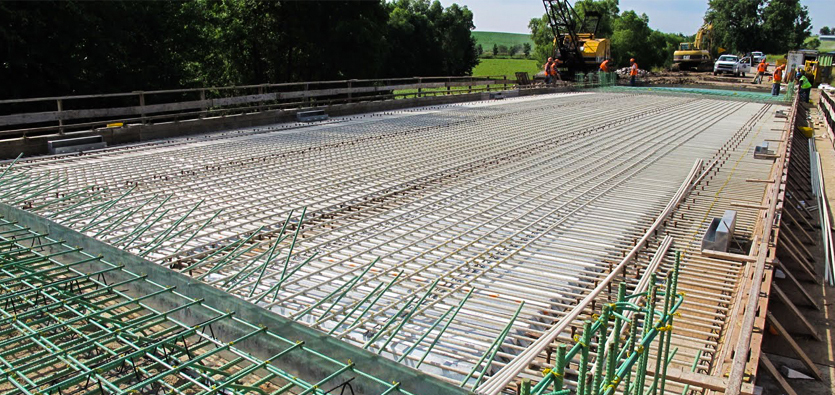How Composites are Changing the Landscape of Building And Construction Products
How Composites are Changing the Landscape of Building And Construction Products
Blog Article
Discovering the Uses and Advantages of Recycled Composites in Modern Industries
The combinations of recycled materials with innovative composite technologies provides an appealing avenue for improving sustainability, resilience, and cost-efficiency across different industries. As industries seek ingenious solutions to resolve ecological worries and improve operational performances, the incorporation of recycled compounds arises as an engaging option.
Environmental Advantages of Recycled Compounds
The usage of recycled composites in modern-day sectors supplies considerable ecological advantages, adding to the decrease of waste and the conservation of all-natural sources. By integrating recycled compounds into making processes, industries can decrease their reliance on virgin products, therefore decreasing the quantity of waste produced and the energy needed for extraction and production. This shift towards making use of recycled composites aids in drawing away materials from land fills, easing the problem on waste management systems, and reducing greenhouse gas emissions connected with typical manufacturing practices.
In addition, making use of recycled composites promotes the conservation of natural deposits such as timber, minerals, and water, which are frequently diminished via the extraction and handling of basic materials (composites). By extending the life expectancy of materials through recycling, industries can aid protect ecosystems and biodiversity by reducing the need for brand-new resources. Generally, the adoption of recycled compounds in contemporary sectors plays a vital duty in advertising sustainability and minimizing the environmental effect of production processes
Enhanced Longevity in Item Manufacturing
With a concentrate on longevity and effectiveness, including recycled composites right into item manufacturing procedures enhances resilience and sustainability. By making use of recycled compounds, suppliers can develop products that are not only strong however additionally resistant to tear and use, making them suitable for lasting use in various markets. The mix of different materials in recycled compounds can often cause improved stamina and toughness contrasted to conventional materials, giving an affordable option for creating durable items.
Among the essential benefits of utilizing recycled compounds in product production is the capability to tailor the product buildings to satisfy details longevity needs. By changing the composition and production strategies, manufacturers can personalize the recycled composites to endure extreme environmental conditions, hefty tons, or frequent use without compromising on efficiency. This versatility in style and production enables the development of extremely resilient items that maintain their stability over time, decreasing the requirement for constant substitutes and inevitably contributing to a more lasting manufacturing process.
Cost-Effectiveness and Financial Advantages
Integrating recycled composites into product production not only improves toughness and sustainability however also supplies significant cost-effectiveness and financial benefits. Making use of recycled compounds can lead to reduced material costs as recycled products are frequently more economical than virgin page products. Additionally, recycling composite materials can lower garbage disposal expenditures and reduce the demand for landfill area, contributing to overall cost financial savings for sectors.

Development and Layout Flexibility With Recycled Composites
Using recycled composites in contemporary sectors provides unparalleled chances for development and layout flexibility. By incorporating recycled materials into composite manufacturing processes, business can push the limits of standard style restrictions and explore new opportunities. The convenience of recycled compounds allows for the development of complex shapes and structures that might not be achievable with conventional products.
Among the essential advantages of recycled composites is their ability to be molded into numerous types, giving developers the liberty to explore unique sizes and shapes. composites. This versatility opens up a world of innovative chances, making it possible for the growth of lightweight yet sturdy site web products that meet the certain needs of different sectors
Additionally, using recycled compounds promotes sustainable methods and sustains the round economic climate by lowering waste and lessening the environmental impact of producing processes. This focus on environmentally friendly design options lines up with the growing trend in the direction of sustainability in modern sectors, making recycled composites a valuable resource for forward-thinking and ingenious companies.
Applications Throughout Various Industries
Recycled compounds discover impactful and diverse applications throughout a wide variety of markets because of their special properties and sustainability advantages. In the automobile market, these products are significantly used for making long lasting and lightweight components, enhancing gas efficiency and minimizing carbon emissions. The aerospace market take advantage of recycled compounds in the manufacturing of aircraft parts, where the materials' strength-to-weight ratio is critical for making certain safety and performance. In building, these composites are used for creating strong yet environmentally friendly building products, adding to lasting infrastructure development. The renewable resource sector employs recycled compounds in wind turbine blades and photovoltaic panels, harnessing their toughness and resistance to extreme environmental problems. Furthermore, the aquatic sector makes use of these materials for making boat hulls and elements, providing enhanced durability and corrosion resistance. The flexibility and sustainability of recycled compounds make them important across different industries, driving advancement and environmental stewardship. composites.
Conclusion
Finally, the application of recycled composites in modern-day markets supplies substantial ecological advantages, boosted longevity in item manufacturing, cost-effectiveness, and economic benefits. In addition, Source the usage of recycled composites enables innovation and design adaptability across numerous markets. Generally, the fostering of recycled compounds provides a sustainable and practical service for fulfilling the demands of the industry while also minimizing environmental impact.

One of the crucial benefits of making use of recycled composites in product production is the capacity to customize the product properties to meet details toughness demands. Utilizing recycled composites can lead to minimized material costs as recycled materials are usually less costly than virgin products. The aerospace sector benefits from recycled composites in the manufacturing of airplane parts, where the products' strength-to-weight ratio is important for guaranteeing safety and efficiency.
Report this page